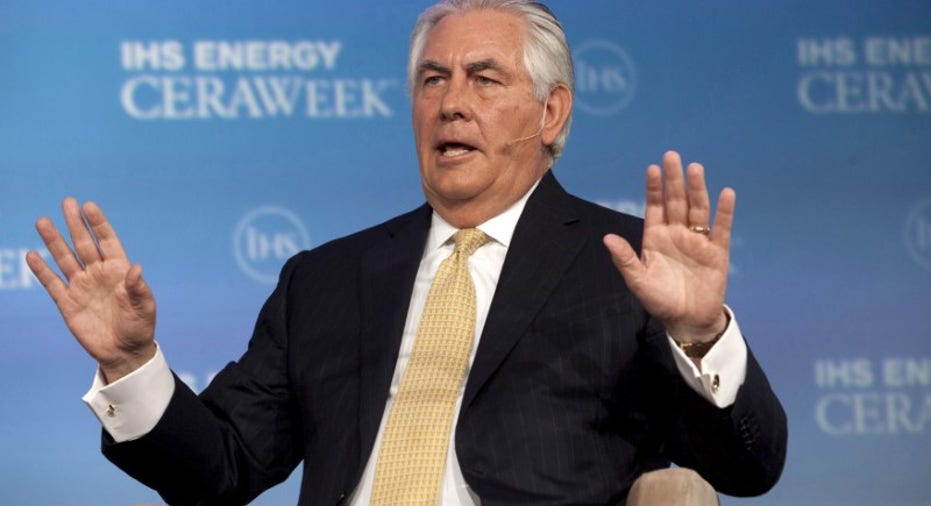Exxon's financial metrics mixed during Tillerson's decade as CEO

HOUSTON – As the front-runner for U.S. secretary of state, Exxon Mobil Corp Chief Executive Rex Tillerson would bring a global business savvy seldom seen in a Cabinet member, let alone the country's top diplomat.
While he may be a "world-class player" - in President-elect Donald Trump's words - the financial metrics of his time as Exxon's CEO reveal some less than stellar results compared with peers.
Exxon's shares are way up under his leadership, but lag behind competitors, oil and gas output is down 14 percent and, while making deals abroad, analysts believe he missed out on some important growth opportunities at home.
Exxon's stock is up 59 percent since Tillerson took the helm in 2006, compared with 104 percent for rival Chevron Corp and a 78 percent jump in the S&P 500 .
And while Exxon's dividend has more than doubled during that period, it has grown less in value than Chevron's.
Exxon under Tillerson continued a strategy of his predecessors, signing deals in remote, oil-rich regions including Russia, which Trump has touted as a sign of the executive's global connections which would serve him well in the top U.S. diplomatic role. [nL5N1E72HT]
While Tillerson has ties to Russia, he partly missed a key energy development back home in the United States by ceding growth potential in the shale oil industry to smaller, more nimble rivals, including Continental Resources Inc .
That has pushed down the company's production of oil and natural gas about 14 percent since Tillerson took office.
Exxon's operating margin has also plunged, from 15.1 percent when Tillerson assumed the CEO role to 2.5 percent in the most recent quarter. The industry average is 6.8 percent, according to Thomson Reuters data.
Those factors partly help explain why Exxon is now seen by Wall Street as a less-desirable investment than Chevron, which has several large oil and gas projects coming online by the end of the decade, offering far-stronger growth potential than Exxon.
Exxon did not respond to a request for comment.
ILL-TIMED DEAL
One of his biggest deals - the $41 billion buyout of XTO Energy in 2009 - was called by Tillerson himself ill-timed because it was done before natural gas prices bottomed out. Those gas prices have still not returned to pre-recession levels, keeping the deal from boosting Exxon's growth prospects as expected.
Exxon's $2.5 billion buyout of InterOil Corp , a major Asian liquefied natural gas producer, is no longer a foregone conclusion due to legal opposition, threatening Exxon's growth potential in that crucial region.[nL1N1D51P5]
Of the 26 analysts covering Exxon's stock, only seven advise buying it. By contrast, none of those 26 analysts advise selling Chevron shares and 17 advise buying Chevron stock.
Oil analysts at Tudor, Pickering, Holt & Co, who encourage Exxon shareholders to sell, said in a note to clients on Monday that Tillerson's experience could be a benefit to the incoming Trump administration.
"A global oil and gas executive should have a pretty good idea about how the world works," TPH analysts said.
Tillerson, who must step down as CEO after he turns 65 next March due to Exxon's mandatory retirement rules, is likely to be replaced by the head of the company's refining unit, a less-glamorous but more financially stable unit. [nL1N1432AO]
Darren Woods, who has worked at Exxon for more than 20 years, has helped expand the refining business at a time when the company's core exploration and production business has been rocked by low commodity prices.
An appointment of Woods to the top Exxon job could signal the company's board wants to continue to focus on cash generation in order to keep boosting shareholder payouts, rather than focus on pricey development projects, analysts have said.
(Editing by Matthew Lewis)



















